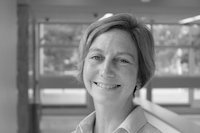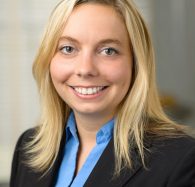Get Involved

 Become a Thought Partner
Become a Thought Partner
Partner with us to produce thought leadership that moves the needle on behavioral healthcare.
 Other options to get involved
Other options to get involved

Thank you!
We received your information and will be in contact soon!
Get Involved

 Grantmaking
Grantmaking
We fund organizations and projects which disrupt our current behavioral health space and create impact at the individual, organizational, and societal levels.
 Participatory Funds
Participatory Funds
Our participatory funds alter traditional grantmaking by shifting power
to impacted communities to direct resources and make funding decisions.
 Special Grant Programs
Special Grant Programs
We build public and private partnerships to administer grant dollars toward targeted programs.
 Program Related Investments
Program Related Investments
We provide funds at below-market interest rates that can be particularly useful to start, grow, or sustain a program, or when results cannot be achieved with grant dollars alone.
Get Involved

 Alyson Ferguson, MPH
Alyson Ferguson, MPH
Chief Operating Officer
Contact Alyson about grantmaking, program related investments, and the paper series.
 Samantha Matlin, PhD
Samantha Matlin, PhD
Senior Learning & Community Impact Consultant
Contact Samantha about program planning and evaluation consulting services.
 Caitlin O'Brien, MPH
Caitlin O'Brien, MPH
Director of Learning & Community Impact
Contact Caitlin about the Community Fund for Immigrant Wellness, the Annual Innovation Award, and trauma-informed programming.
 Joe Pyle, MA
Joe Pyle, MA
President
Contact Joe about partnership opportunities, thought leadership, and the Foundation’s property.
 Bridget Talone, MFA
Bridget Talone, MFA
Grants Manager for Learning and Community Impact
Add some text here
The Scattergood Foundation has been supporting the Health and Design Research Seminar at Drexel University since 2016, as a way to sustain and support our past Design Challenges and broadening the use of Design Thinking principles. The course grew out of Drexel’s participation in the AIA Design & Health Research Consortium and led by Dr. Yvonne Michael and Professor D.S. Nicholas, RA, AIA, NCARB. At Dr. Michael’s initiative, the program became a part of this national group of teams including architects, designers, and public health researchers representing universities across the U.S. and committed to growing the body of research linking design and health. The Health and Design Research Seminar has provided an in-depth, practical, and direct experience for dozens of graduate level students at the intersection of public health and design. We believe this course has shaped the next-generation of public health and design leaders to be solutions oriented, trauma-informed, problem solvers focused on “Designing with Dignity”.
Dr. Michael and Professor Nicholas responded to the below questions in writing as part of our physically distanced grantee check-in.
How has interdisciplinary teaching and research impacted you and your work?
Dr. Michael: While my own research program has always spanned disciplines and I had previously taught a seminar on Social Determinants of Health as part of a cross-disciplinary team, my experience teaching the Health and Design Research Seminar has fundamentally changed my approach to teaching and to scholarship in way that continues to evolve and develop. I believe that beyond teaching and scholarship, the approach to problems we teach in our course is essential to address the issues facing our community and world today. My job is not to convince my colleagues that my expertise is the most relevant in our shared projects related to health but, rather to accept that approaching the issue with these different tools may yield a much different but also possibly a better solution.
Professor Nicholas: In the past five years, Dr. Michael and I have built a far-reaching research agenda around using our health and design research approach to contribute to the solution of the urban housing crisis. Working with community care providers in the housing insecurity and community care space, we have created a program of research and pedagogy that examines substandard emergency and transitional housing at many scales and with many stakeholders. Several research projects and assistive prototypes have arisen from this engagement, but for each of us we have also seen our perspectives on this work grow and change. I feel that the exposure to how epidemiologists see health, space and society has changed my approach as a designer and researcher. I have gained an understanding of how health research can target our resources within the definition of a complex problem, and how it can drive us to an even more human and society centered approach. The work we have undertaken has become both a novel interprofessional problem solving process, and a scholarly approach that now is central to the way we and our students see the world and our place within it as professionals. Through this work we have created a shared language, and built on that shared language to create a shared sustained engagement to help create positive change for our stakeholders, partners and each other.
What does it mean to teach and learn in an interdisciplinary team?
Dr. Michael and Professor Nicholas: Teaching as part of an interdisciplinary team requires careful communication, willingness to learn new constructs and models, and humility related to the supremacy of your own constructs and models.
Communication. When we spend most of our time talking with people who share our background and training, we don’t have to be as thoughtful about how we express ourselves. We use jargon familiar to those with our training; we make statements without justification or explanation because the people we are talking with are familiar with the constructs that underlie our thought process and don’t question our assertions. We both learned quickly that jargon is meaningless to colleagues from other disciplines and that makes you think more about what you are talking about and to describe it rather than relying on language that is insider code. What does it really mean to talk about “social determinants of health” or “health inequities”? What is the Double Diamond? Similarly, we cannot rely on shared mental models that we take for granted when talking to other professionals in our fields and we often spend time explaining why we made an assertion or designed a process in a certain way. This makes us both think more deeply about why we believe certain things or see reality in a certain way. Often this means we need to look at things more carefully, reflect on what is known, and review evidence or options that we’ve taken for granted. Dr. Michael and Professor Nicholas both believe that sometimes in explaining things that long ago became a part of their lives, they can gain clarity on their current experiences and see new aspects of their goals.
Learning new constructs. In order to function in an interprofessional team, it isn’t enough to understand your own disciplinary core constructs. It is necessary to understand some basics of the disciplines of the people with whom you are working. This does not mean that we have to become professionals in each other’s’ arenas, but we do need to learn some basic constructs and also have a sense of the breadth of the field of our collaborators. This helps each of us to understand the areas in which we can seek and provide authoritative guidance but also helps us to discuss the work in an informed and productive way. We are able to have higher level conversations about the ways our disciplines converge or diverge. We begin to develop models that are closer to amalgams representing true integration between our disciplines.
Humility. Part of professionalism is the development of unique and essential knowledge and learning through experience how to use this knowledge to make an impact in the world. Working as part of an interprofessional team requires openness to valid tools and knowledge applied by other professions to the same issues/topics. As an epidemiologist, Dr. Michael was trained to make hypotheses based on patterns of disease and quantify associations to identify modifiable risk factors. As an Architect, Professor Nicholas was trained to think at many scales and to examine systems and problems for their underlying causes. A conventional single discipline process is linear and based on deductive reasoning, though this collaboration, we have both learned to closely observe the world and use inductive reasoning to build new models to solve problems.
Why does it matter?
Dr. Michael and Professor Nicholas: Today our world is ever more complex and inter-connected, the coronavirus is an example of this complex interconnectivity, and the basic tenants of one discipline, either Design or Epidemiology, are insufficient to keep people and our communities safe. While many people have prepared and trained for a pandemic, we are living in uncharted times. Known solutions yield disastrous outcomes and additional human suffering. A single lens will not address this pandemic, lateral thinking and deep interprofessional collaboration re necessary for such problems. We believe that interprofessional training, like the training led by us and many others, has created professionals who can think, work, and lead the types of interprofessional teams that will be needed to solve the shorter- and longer-term coronavirus-related challenges we now face.
 Dr. Yvonne Michael received her ScD in Epidemiology and Health and Social Behavior from the Harvard School of Public Health, SM in Health and Social Behavior from the Harvard School of Public Health and BA in Government from the College of William and Mary. Dr. Michael’s research is focused on three primary areas: active aging, women’s health, and health disparities. The unifying theme across these research areas is the use of epidemiology as a method of inquiry to identify social characteristics of communities and individuals and describe the impact of these factors on population health. Learn more about Dr. Michael at: https://drexel.edu/dornsife/academics/faculty/Yvonne Michael/
Dr. Yvonne Michael received her ScD in Epidemiology and Health and Social Behavior from the Harvard School of Public Health, SM in Health and Social Behavior from the Harvard School of Public Health and BA in Government from the College of William and Mary. Dr. Michael’s research is focused on three primary areas: active aging, women’s health, and health disparities. The unifying theme across these research areas is the use of epidemiology as a method of inquiry to identify social characteristics of communities and individuals and describe the impact of these factors on population health. Learn more about Dr. Michael at: https://drexel.edu/dornsife/academics/faculty/Yvonne Michael/
 D.S. Nicholas RA, AIA, NCARB, is the director of the MS Design Research program and she also coordinates the Sustainability in the Built Environment Minor. Teaching a variety of studios and required courses in materials and conceptual sequences, Dee also specializes in interdisciplinary immersive research courses centered on health, human centered problem solving, sustainability and creativity. Dee instructs Graduate Design Research and Interior Architecture and Design Students and Undergraduate Interior Design students as well as mentoring and interfacing with students across the university. Learn more about and see some of Professor Nicholas work at: https://www.integralhealthyliving.com/
D.S. Nicholas RA, AIA, NCARB, is the director of the MS Design Research program and she also coordinates the Sustainability in the Built Environment Minor. Teaching a variety of studios and required courses in materials and conceptual sequences, Dee also specializes in interdisciplinary immersive research courses centered on health, human centered problem solving, sustainability and creativity. Dee instructs Graduate Design Research and Interior Architecture and Design Students and Undergraduate Interior Design students as well as mentoring and interfacing with students across the university. Learn more about and see some of Professor Nicholas work at: https://www.integralhealthyliving.com/










